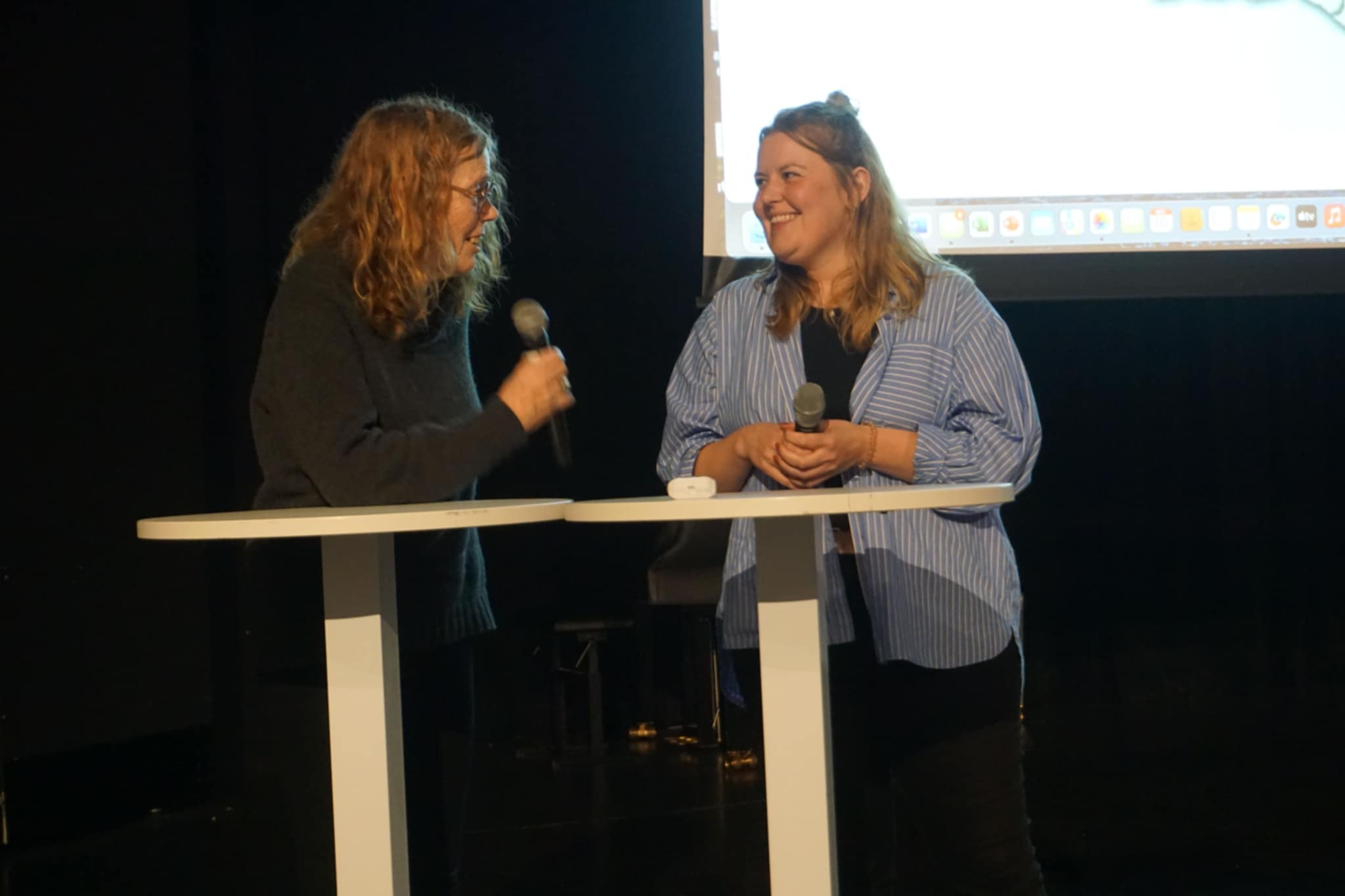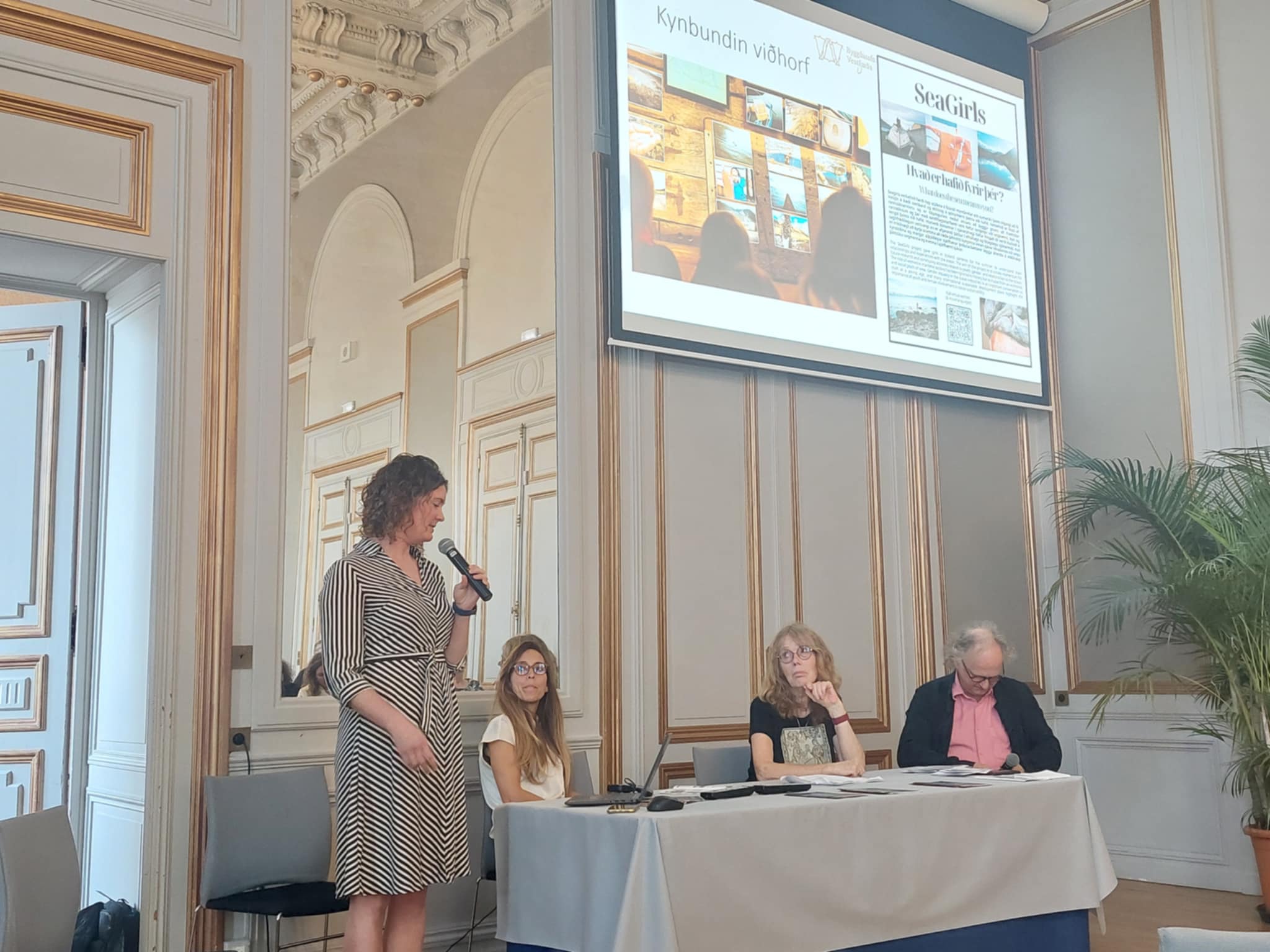Researching Cultural Ties: Iceland and the Basque Country
Dr. Catherine Chambers, UW’s research manager and project leader for the Jules Verne project, along with project coordinator and UW alumna Alex Tyas, have just returned from a trip to Bayonne, France in association with a Jules Verne grant which supports research collaboration between Icelandic and French partners. Catherine and Alex also gave presentations during the Haizebegi festival that celebrates Basque culture.
The Jules Verne project is part of a larger collaboration related to the development of the Basque Centre in Djúpavík, funded by Creative Europe. The museum is located where the unique history of the Basque whalers in Iceland took place. In 1615, three Basque ships were stranded in a storm near Djúpavík. Many survived the storm, but 31 were killed by locals in the following days. This history elicits an emotional response from both Icelanders and Basque alike.


On the left: Alex presenting on her PhD research on community engagement in archaeology. On the right: Catherine Chambers presenting UW projects.
The Jules Verne project aims to understand how these emotions and the history combine to create a re-newed cultural connection between Iceland and the Basque Country. The project is lead by Dr. Denis Labord from CERN and Dr. Catherine Chambers, and will analyze the development of museum as a community development tool, and document the experiences and perceptions of the Icelandic locals, and Basque citizens, on the development of the museum in Djúpavík. The research team also includes PhD students, and takes an analytical angle to study the modern emotions, perceptions and experiences connected to the ongoing revival of cross-cultural connections. The museum is an important example of the role maritime heritage plays in community development, museums, and community engagement. The project is a collaboration between UW, Haizebegi, Albaola, the Basque Centre, Baskavinafélag, and Rannís.

Alex Tyas, Catherine Chambers, and Elísabet Gunnarsdóttir, UW board member, at Albaola during the Haizebegi festival.
